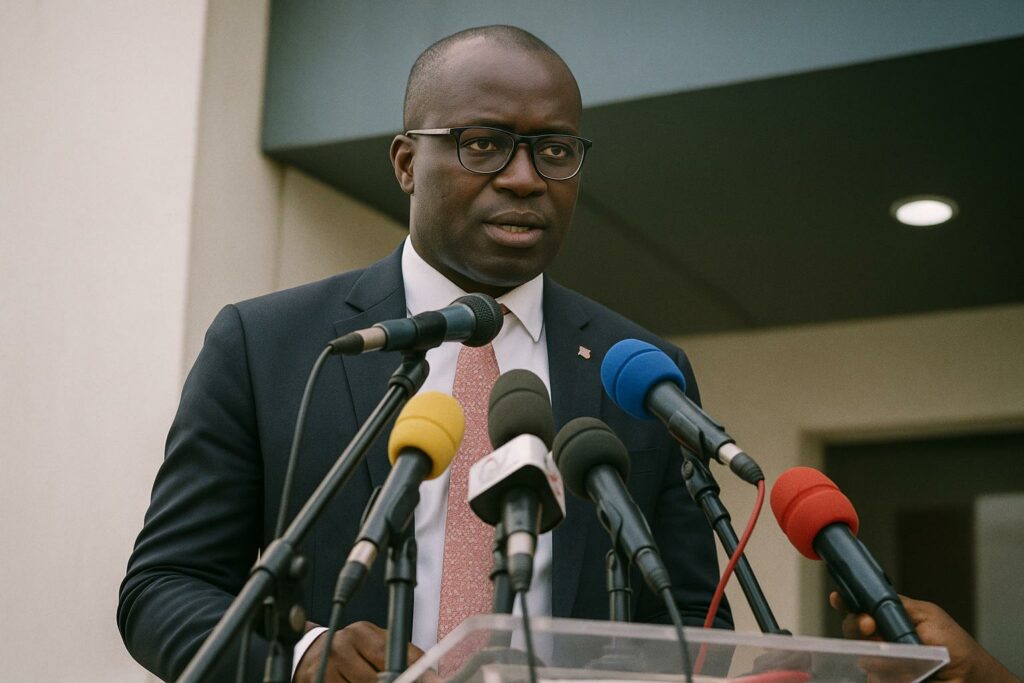A One-Stop Shop for Registration
Not long ago, founding even a modest bakery in Congo-Brazzaville required a stamina more often associated with marathon runners than with bakers. Multiple ministries, security clearances and overlapping fees slowed ambitions to a near halt. The Agence Congolaise pour la Création des Entreprises is designed to consign that experience to the past. Created under Law 16-2017 and placed under the supervision of the Ministry of Small and Medium-Sized Enterprises and Handicrafts led by Minister Jacqueline Lydia Mikolo, the ACPCE centralises every legal formality in a single front office located on Avenue Émile Biayenda in Brazzaville, with regional desks from Pointe-Noire to Ouesso.
Streamlining Formalities and Costs
Director-General Emeriand Dieu-Merci Kibangou, at the helm since February 2022, says the new framework delivers on the Head of State’s pledge to make entrepreneurship “as ordinary as opening a bank account”. Applicants present three items only: an identity document, a lease contract for their premises and a fee of twenty-five thousand CFA francs—down from the previous one-hundred-thousand. In return they walk away with a unique exploitation licence that summarises their accounting, fiscal and social obligations, including forthcoming deadlines with the CNSS and the tax administration. “We have exorcised the act of creation,” Kibangou insists, emphasising that the licence is entirely free. By collapsing the journey into a single step, the agency aims to liberate productive energies and to formalise a segment of the economy long trapped in informality.
Tracking the Entrepreneurial Pulse
The ACPCE maintains what Kibangou calls “the birth registry” of Congolese companies. To date, roughly thirty-five thousand enterprises have been recorded, although only one-third appear on the tax authority’s radar and even fewer—just under five thousand—are recognised by the National Institute of Statistics. The gap underscores a long-standing challenge: businesses tend to fade away informally, rarely filing the requisite declaration of cessation, leaving official statistics to puzzle over whether a company is dormant, deceased or simply biding its time. The agency hopes the coming wave of digitalisation will allow it to cross-reference data sets and sharpen the country’s macroeconomic picture.
Youth and Gender Dynamics
With sixty per cent of Congolese under thirty, the government has declared 2024 the “Year of Youth”. In that context Minister Mikolo launched the “One Young Person, One Enterprise” initiative with technical backing from the UN Development Programme. Some two-thousand-five-hundred-seventy-nine beneficiaries have so far received training, mentoring or seed finance valued at between three and five billion CFA francs. Women are seizing the moment: they accounted for twenty-six point two per cent of new businesses in 2024, peaking at twenty-eight point four per cent in the Pool Department. The capital nevertheless retains its primacy, wp-signup.phping forty per cent more incorporations than the economic hub of Pointe-Noire. Kibangou welcomes the trend as evidence that “entrepreneurship is breaking free of the traditional gender mould”.
À retenir
Seventy-two hours is now the official benchmark for incorporation in Congo-Brazzaville, reflecting a deliberate policy choice to support private-sector led growth. The administrative fee has been quartered, the paperwork condensed to two documents and an electronic database is under construction to track the life cycle of firms more accurately.
Le point juridique/éco
Legislatively, the reform is anchored in Law 16-2017 and aligns with OHADA corporate norms, including the categorisation of enterprises by annual turnover: micro and very small enterprises up to twenty-five million CFA francs, small enterprises up to one-hundred million, medium enterprises up to just below two billion and large enterprises above that threshold. Misclassification exposes managers to fiscal adjustments, a risk the ACPCE mitigates through its counselling desk. From an economic standpoint the reduction of entry barriers is expected to broaden the tax base over time while reinforcing social protection enrolment, as the unique licence clearly signals obligations to both the treasury and the social security fund.
Perspectives Ahead
The agency’s next frontier is full digitalisation. Pilot tests for online filing are under review, promising to extend the seventy-two-hour promise to entrepreneurs in the most remote districts without requiring physical travel. For Kibangou, the ultimate metric will be neither speed nor volume but the survival rate of start-ups. “We hold the birth certificates,” he concedes, “yet we still lack death certificates.” If the ACPCE manages to pair swift creation with reliable exit data, Congo-Brazzaville could well become a regional reference in evidence-based policy for small business development. In the meantime the Director-General’s message remains simple: the door is open, the process is swift and the country’s economic future rests in the imagination of its youth.

